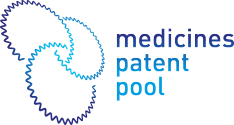Hetero Joins the Patent Pool, Signing Licence to Produce Low-Cost HIV Medicines
25 July 2012
WASHINGTON, DC: Hyderabad-based Hetero Labs has signed a licence agreement with the Medicines Patent Pool that will allow it to produce key HIV medicines for a number of developing countries.
The agreement will allow Hetero to produce four key medicines originally developed by Gilead Sciences – emtricitabine, cobicistat, and elvitegravir, and a combination of these medicines plus a fourth drug, tenofovir, in a single pill known as the “Quad” – in 100-112 countries. These medicines were licensed to the Pool by Gilead Sciences in July 2011.
“The terms and conditions that the Pool was able to negotiate represent an improvement on previous licences and this will enable us to make affordable drugs available faster to more people,” said Mr M. Srinivas Reddy of Hetero. Hetero is a major supplier of HIV medicines in the developing world, with more than 25 products approved by the US Food and Drug Administration/World Health Organization in Geneva, and many in the pipeline. Hetero currently produces antiretroviral treatment for over 2 million people living with HIV in more than 100 countries.
Hetero has also chosen to take advantage of a key flexibility in the Pool’s agreement that enables it to sell tenofovir to a large number of countries where it is not under patent.
Cobicistat, elvitegravir and the Quad are new drugs in development; being licensed through the Pool should help speed their availability in developing countries soon after they receive regulatory approval; this is a significant step forward as there is often a several years-long delay for new medicines to reach resource-limited markets.
“Hetero’s joining the Pool will help expand access to tenofovir in more countries. We are also excited at the prospect of a leading HIV manufacturer such as Hetero being able to launch promising new therapies soon after they are approved in developed countries,” said Chan Park, Interim Executive Director of the Medicines Patent Pool.
Hetero is the fourth generic company to take a licence from the Pool. The more companies take licences from the Pool, the more robust will be generic competition on HIV medicines, and the more affordable those medicines will become for people who need them.
“UNITAID helped create the Pool because it believed in its potential to help bring affordable, necessary medicines to market. Every new sub-licensee takes the Pool one step closer to that goal,” said Denis Broun, Executive Director of UNITAID.
The Medicines Patent Pool is in negotiations with patent holders Boehringer-Ingelheim, Bristol-Myers Squibb, F. Hoffman La Roche, and ViiV Healthcare [a joint venture of GlaxoSmithKline and Pfizer], as well as with several generic companies, to reach licence agreements that will help reduce the prices on several additional key HIV medicines.
For further information on the Medicines Patent Pool, see its website at: www.medicinespatentpool.org, or contact MPP Communications at gro.looptnetapsenicidem@sserp
ABOUT THE MEDICINES PATENT POOL
The Medicines Patent Pool, founded with the support of UNITAID in July 2010, is a mechanism seeking to lower the price of medicines for HIV in developing countries by facilitating generic competition. Patents can drive up prices for drugs; licences allow low-cost generic versions to be made even where patents exist. The Pool negotiates with the patent holders of critically important HIV medicines for licences; it then sub-licenses these to generic manufacturers, freeing them up to develop, produce and sell affordable medicines in agreed countries under strict quality assurance.
ABOUT UNITAID
UNITAID is a global health initiative established to increase access to quality-assured treatments for HIV/AIDS, malaria and tuberculosis through sustainable financing and market interventions. In less than five years since its inception, UNITAID has committed US$ 800 million for AIDS treatment in 52 low- and middle-income countries. UNITAID developed the concept of the Medicines Patent Pool as part of its market strategy, which is to stimulate market competition, ramp up production and increase availability of newer and better medicines at affordable prices. In December 2009, the UNITAID Executive Board voted in principle to create the Medicines Patent Pool, which became a separate legal entity in July 2010.







